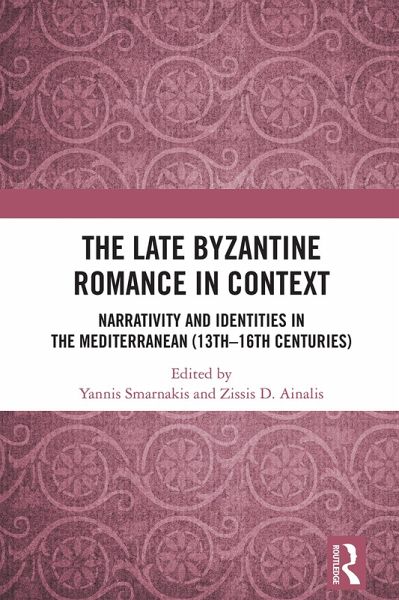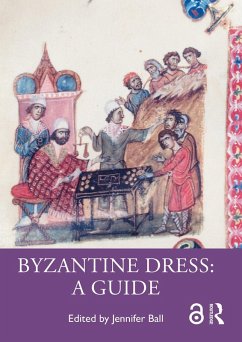
The Late Byzantine Romance in Context (eBook, ePUB)
Narrativity and Identities in the Mediterranean (13th-16th Centuries)
Redaktion: Smarnakis, Ioannis; Ainalis, Zissis D.
Versandkostenfrei!
Sofort per Download lieferbar
42,95 €
inkl. MwSt.
Weitere Ausgaben:

PAYBACK Punkte
21 °P sammeln!
This book investigates issues of identity and narrativity in late Byzantine romances in a Mediterranean context, covering the chronological span from the capture of Constantinople by the Crusaders in 1204 to the 16th century. It includes chapters not only on romances that were written and read in the broader Byzantine world but also on literary texts from regions around the Mediterranean Sea.The volume offers new insights and covers a variety of interrelated subjects concerning the narrative representations of self-identities, gender, and communities, the perception of political and cultural o...
This book investigates issues of identity and narrativity in late Byzantine romances in a Mediterranean context, covering the chronological span from the capture of Constantinople by the Crusaders in 1204 to the 16th century. It includes chapters not only on romances that were written and read in the broader Byzantine world but also on literary texts from regions around the Mediterranean Sea.
The volume offers new insights and covers a variety of interrelated subjects concerning the narrative representations of self-identities, gender, and communities, the perception of political and cultural otherness, and the interaction of space and time with identity formation. The chapters focus on texts from the Byzantine, western European, and Ottoman worlds, thus promoting a cross-cultural approach that highlights the role of the Mediterranean as a shared environment that facilitated communications, cultural interaction, and the trading and reconfiguration of identities.
The volume will appeal to a wide audience of researchers and students alike, specializing in or simply interested in cultural studies, Byzantine, western medieval, and Ottoman history and literature.
The volume offers new insights and covers a variety of interrelated subjects concerning the narrative representations of self-identities, gender, and communities, the perception of political and cultural otherness, and the interaction of space and time with identity formation. The chapters focus on texts from the Byzantine, western European, and Ottoman worlds, thus promoting a cross-cultural approach that highlights the role of the Mediterranean as a shared environment that facilitated communications, cultural interaction, and the trading and reconfiguration of identities.
The volume will appeal to a wide audience of researchers and students alike, specializing in or simply interested in cultural studies, Byzantine, western medieval, and Ottoman history and literature.
Dieser Download kann aus rechtlichen Gründen nur mit Rechnungsadresse in A, B, BG, CY, CZ, D, DK, EW, E, FIN, F, GR, HR, H, IRL, I, LT, L, LR, M, NL, PL, P, R, S, SLO, SK ausgeliefert werden.













